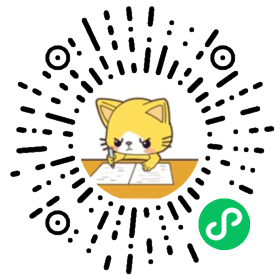【单选题】
农业社会主义改造第一阶段,主要是发展___,是农业合作化的最初过渡形式,具有社会主义萌芽性质。
A. 互助组
B. 初级社
C. 高级社
D. 合作社
查看试卷,进入试卷练习

微信扫一扫,开始刷题

答案
A
解析
暂无解析
相关试题
【单选题】
我国的手工业社会主义改造大体上经历了___三个阶段。
A. 互助组、初级社和高级社
B. 供销小组、供销合作社和生产合作社
C. 初级形式国家资本主义、个别企业公私合营和全行业公司合营
D. 委托加工、计划订货和统购包销
【单选题】
我国的资本主义工商业的社会主义改造大体上经历了___三个阶段。
A. 互助组、初级社和高级社。
B. 供销小组、供销合作社和生产合作社
C. 初级形式国家资本主义、个别企业公私合营和全行业公司合营
D. 委托加工、计划订货和统购包销
【单选题】
国家资本主义有初级形式和高级形式之分,初级形式的国家资本主义是___。
A. 个别企业的公私合营和全行业公私合营
B. 供销小组、供销合作社和生产合作社
C. 国家对私营工商业实行委托加工、计划订货、统购包销、经销代销等
D. 委托加工、计划订货和统购包销
【单选题】
国家资本主义有初级形式和高级形式之分,高级形式的国家资本主义是___。
A. 个别企业的公私合营和全行业公私合营
B. 供销小组、供销合作社和生产合作社
C. 国家对私营工商业实行委托加工、计划订货、统购包销、经销代销等
D. 委托加工、计划订货和统购包销
【单选题】
1953年9月,毛泽东在对民主党派和工商界部分代表讲话时指出:改造资本主义工商业和逐步完成社会主义过渡的必经之路是 ___
A. 剥夺资本家的财产
B. 排挤私营工商业
C. 国家资本主义
D. 保护民族工商业
【单选题】
社会主义过渡时期总路线错误的说法是 ___
A. 实现社会主义工业化、农业手工业和资本主义工商业的社会主义改造
B. 过渡时期结束的标志是社会主义改造结束
C. 以单一的社会主义公有制和计划经济体制为目标
D. 以中国特色社会主义为目标
【单选题】
1956年我国在生产资料所有制的社会主义改造基本完成后,开始进入 ___
A. 新民主主义时期
B. 国民经济恢复时期
C. 从新民主主义向社会主义过渡时期
D. 全面建设社会主义时期
【单选题】
1956年底我国对农业、手工业和资本主义工商业的社会主义改造基本完成,标志着___基本制度在我国初步确立。
A. 社会主义
B. 新民主主义
C. 共产主义
D. 国家资本主义
【单选题】
社会主义改造中最具有中国特色的对马克思主义社会主义学说贡献最大的是对 ___
A. 对资本主义工商业的社会主义改造
B. 对农业的社会主义改造
C. 对手工业的社会主义改造
D. 社会主义工业化道路
【单选题】
1954年9月,第一届全国人民代表大会的召开和___的制定及颁布施行,明确地规定了我国的国体和政体。
A. 《中华人民共和国宪法》
B. 《共同纲领》
C. 《中华人民共和国临时宪法》
D. 《临时约法》
【单选题】
中国社会主义基本制度的确立,使占世界人口四分之一的东方大国进入了社会主义社会,这是___运动史上又一个历史性的伟大胜利。
A. 世界无产阶级
B. 世界共产主义
C. 世界社会主义
D. 世界落后国家
【单选题】
毛泽东提出的实现马克思主义与中国实际的第二次结合就是要___
A. 走出中国自己的社会主义革命道路
B. 走出中国自己的社会主义建设道路
C. 延续第一次结合的内容
D. 弥补第一次结合的错误
【单选题】
中国共产党关于中国社会主义建设道路的探索___
A. 是从探索了工业化的道路后开始的
B. 是在对苏联模式弊端已有认识的背景下开始的
C. 是从对社会主义社会基本矛盾的认识开始的
D. 是从中国社会主义改造道路的实践开始的
【单选题】
毛泽东对中国特色社会主义建设道路初步探索,提出一系列关于社会主义建设的重要理论观点的著作是___
A. 《论十大关系》
B. 《关于正确处理人民内部矛盾的问题》
C. 《关于国家资本主义经济》
D. 《国家与革命》
【单选题】
毛泽东提出“以苏联经验为鉴戒,走自己的路”重要思想的著作是___
A. 《新民主主义论》
B. 《论人民民主专政》
C. 《论十大关系》
D. 《为建设一个伟大的社会主义国家而奋斗》
【单选题】
毛泽东在《论十大关系》的讲话中,提出中国社会主义建设的基本方针是___
A. 解放思想,实事求是
B. 既反保守又反冒进,在综合平衡中稳步前进
C. 把国内外一切积极因素调动起来,为社会主义事业服务
D. 在新的生产关系下保护和发展生产力
【单选题】
毛泽东把重工业、轻工业和农业的发展关系问题提到中国工业化道路的高度加以论述的文章是___
A. 《论十大关系》
B. 《关于正确处理人民内部矛盾的问题》
C. 《在中国共产党全国代表会议上的讲话》
D. 《为建设一个伟大的社会主义国家而奋斗》
【单选题】
毛泽东在《论十大关系》的报告中指出,在社会主义事业的发展中,一般来说,经济因素是处于___,占有压倒的优势,这是社会主义事业必定胜利的可靠保证。
A. 主导的、统治地位的
B. 主导的、被统治地位的
C. 非主导的、统治地位的
D. 非主导的、被统治地位的
【单选题】
1956年中共八大提出我国国内的主要矛盾是___
A. 无产阶级同资产阶级的矛盾
B. 社会主义道路与资本主义道路的矛盾
C. 先进的生产关系与落后的生产力之间的矛盾
D. 人民对于经济文化迅速发展的需要同当前经济文化不能满足人民需要状况之间的矛盾
【单选题】
在我国社会主义改造完成后,党的中心任务是___
A. 进行思想上、政治上的社会主义革命
B. 继续进行两个阶级、两条道路的斗争
C. 大力发展社会生产力
D. 坚持无产阶级专政下的继续革命
【单选题】
20世纪50年代,我国提出了建设四个现代化的社会主义强国的战略目标,其中四个现代化是指___
A. 工业、农业、商业和交通业
B. 工业、农业、商业和科学技术
C. 工业、农业、国防和科学技术
D. 工业、农业、国防和交通业
【单选题】
中共八大提出的我国当时经济建设的指导方针是___
A. 调动一切积极因素,建设社会主义强国
B. 既反保守又反冒进,在综合平衡中稳步前进
C. 在新的生产关系下保护和发展生产力
D. 尽快地把我国由农业国变为先进的工业国
【单选题】
我国社会主义改造基本完成后,其所有制结构所呈现的状况是___
A. 完全的所有制
B. 基本单一的公有制
C. 社会主义公有制为主体,多种经济形式共同发展
D. 国营经济为领导,多种经济形式并存
【单选题】
社会主义改造基本完成后,国家政治生活的主题是___
A. 探索本国建设社会主义的道路
B. 不断解决仍然存在的敌我矛盾,同时正确处理人民内部矛盾
C. 正确处理人民内部矛盾
D. 集中力量解决人民对于建立先进的工业国的要求同落后的农业国现实之间的矛盾
【单选题】
毛泽东在《关于正确处理人民内部矛盾的问题》中提出解决社会主义社会基本矛盾的途径是___
A. 进行新民主主义革命
B. 进行社会主义革命
C. 依靠社会主义制度本身的力量进行改革
D. 进行无产阶级专政下的继续革命
推荐试题
【单选题】
待挂状态:为车钩连接前的准备状态,此时钩舌定位杆被固定在待挂位置,拉簧处于较大 ,钩锁连接杆退缩至凸锥体内,钩舌上的钩嘴对着钩头正前方。
A. 正常状态
B. 压缩状态
C. 拉伸状态
D. 受力状态
【单选题】
待挂状态:为车钩连接前的准备状态,此时钩舌定位杆被固定在待挂位置,拉簧处于较大拉伸状态,钩锁连接杆退缩至凸锥体内,钩舌上的钩嘴对着钩头 。
A. 正前方
B. 正上方
C. 正下方
D. 正后方
【单选题】
待挂状态:为车钩连接前的准备状态,此时钩舌定位杆被固定在待挂位置,拉簧处于较大 ,钩锁连接杆退缩至凸锥体内,钩舌上的钩嘴对着钩头 。
A. 拉伸状态,正前方
B. 压缩状态,正前方
C. 拉伸状态,正后方
D. 压缩状态,正后方

